The preliminary stage of the 2021 World Junior Championship was marked by two things. The first was the unfortunate circumstances surrounding COVID-19 cases and the handful of players and coaches that either had to quarantine within the bubble in Edmonton or miss the tournament altogether. Sweden and Germany were hit especially hard, but nearly every team felt its effects and had to adjust accordingly.
Sign up for our NHL Prospects & Draft Substack newsletter
The second was the blowout losses. First, it was Germany, with nine players sitting out in quarantine, falling to Canada 16-2 in their opening game. Next, Austria, with just one NHL-drafted player, was dismantled by the Americans 11-0, also in their tournament opener. Finally, the Canadians returned to pick apart the hapless Swiss team 10-0, sealing their fate for the relegation round.
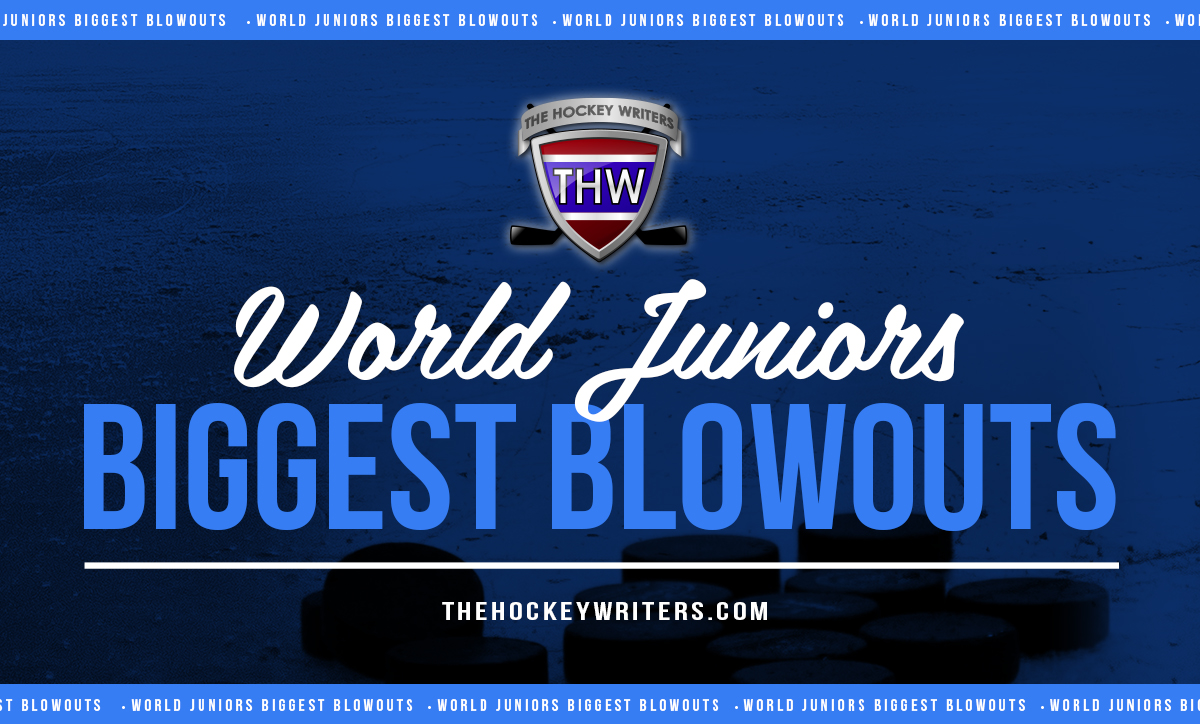
Blowouts aren’t all that uncommon at the World Juniors, but surpassing the 10-goal threshold has become somewhat of a rarity, making Canada and the USA’s victories all that more uncomfortable to watch. But early in the tournament’s history, goal totals often broke ties, encouraging teams to rack up the score as much as they could, and they did. Canada’s victory over the depleted Germans is the biggest goal differential in several years, but where does it rank among the top-10 blowouts in World Junior history? Spoiler alert — it doesn’t even crack the top-20.
10 – USSR 17-Norway 0 (1979)
Prior to 1982, there was no question as to who was the greatest junior hockey nation. The Soviet Union was unstoppable in almost every international competition at any level, but they were especially dangerous at the World Junior Championship. From 1974 to 1980, they placed first in every single tournament, racking up seven gold medals. The IIHF began sponsoring the competition in 1977, and thus do not officially count the first three, but the USSR’s dominance was still unquestionable.
Related: 2024 World Junior Championship Guide
During that stretch, the Soviets made a mockery of their competition, losing just a single game and tying another in 34 appearances. Blowouts were a regular occurrence against the Soviets since they often faced the newly-promoted team in their first game as the defending gold medalists. A perfect example of the mismatch was at the 1979 tournament, when Norway, making their debut international U20 appearance, faced off against Igor Larionov, Vladimir Krutov, and the rest of the Soviets. They didn’t stand a chance — the Soviets likely never even broke a sweat as they scored 17 goals against the poor Norwegians.
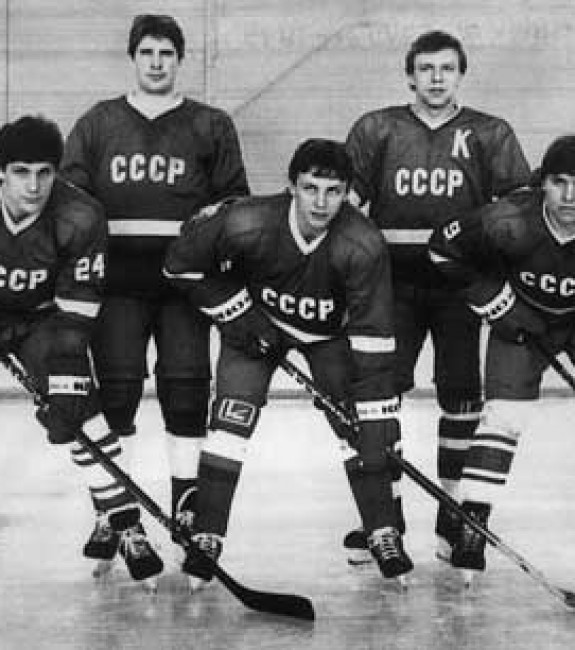
Norway failed to win any games in 1979 and was relegated to Pool B (now called Division IA), where they’d remain until 1982. As for the Soviets, they faced the Americans and Czechs in their following games and held them to just a goal apiece while scoring a combined 16 goals in those two games. They’d face a bit more pressure when they re-matched the Czechs in the Championship Round, but it wouldn’t be enough to stop them from cruising to another gold medal.
9 – Sweden 17-Switzerland 0 (1982)
Sweden has had an interesting history at the World Juniors. They’ve been around since the very first competition in 1974, but have only claimed two gold medals in the 47 years it’s been held. It’s not that they are bad — Sweden has developed some of the greatest hockey players of all time — but in international competitions, they just couldn’t seem to put it together. In 1981, they finally broke through and claimed their first gold medal, which meant that when they returned, they’d get to take on the newest member of the top division.
Related: World Juniors Blowouts & Why It’s Never Wrong to Run Up the Score
That team happened to be Switzerland, who were making their third appearance at the tournament after easily winning Pool B in 1981. Yet the results were painfully one-sided, with Sweden scoring 17 unanswered goals as they captured their first win of the competition. However, Sweden stumbled against the Canadians, losing 3-2, and went on to drop their games against Finland and the Soviet Union. With a record of 4-3-0, the defending gold-medalists finished fifth, while the Canadians went on to claim their first gold at the tournament.
8 – Canada 18-West Germany 2 (1986)
Canada did not begin as the junior powerhouse we know today. Part of that was due to the Canadian Amateur Hockey Association (CAHA) choosing to send the CHL’s top team to compete at the World Juniors. The results were far from ideal for a nation that boasted to be the inventors of hockey, so in 1982, they sent their first all-star team from around the nation. The result was a dominant Canadian showing and capturing their first World Junior gold medal.
From that point on, Canada transformed into one of the most dangerous teams at the tournament. In 1985, they won their second gold medal after posting their first undefeated record, and they returned in 1986 looking to defend their title. Armed with Shayne Corson, Joe Murphy, and Joe Nieuwendyk, the team got off to a hot start against the Swiss, defeating them 12-1 in their opening game. The following day, they faced West Germany and carried by their momentum from their first win, easily won the game 18-2.
The win was — and still is — the biggest victory by a Canadian junior team in an international tournament. The only problem is that Canada’s schedule got progressively harder after that. They won their next three games, but by much smaller margins and just barely slipped by the Finns, 6-5. Their toughest challenges came in their final two contests. First, they faced the Soviets and lost 4-1, then they took on the Czechs and lost again by a score of 5-3. Those two losses were all it took to allow the Soviets to sneak ahead and claim their seventh official gold medal, while Canada took home their second silver.
7 – USSR 18-Switzerland 1 (1978)
Switzerland’s loss to Sweden in 1982 was not their first time in the top group. They made their debut in 1978 and were scheduled to play against the Soviets, who welcomed them the only way they knew how — by scoring as many goals as possible. Like their 1982 game, it was a painful mismatch. The Soviets were led by some of the greatest Russian stars to ever play the game in Sergei Makarov, one part of the deadly KLM line of the Soviet National Team, and Vyacheslav Fetisov, who revolutionized defense in Russia. The Swiss had no one of that caliber (no one did, really), and they held on for dear life as the USSR sailed to an 18-1 victory.
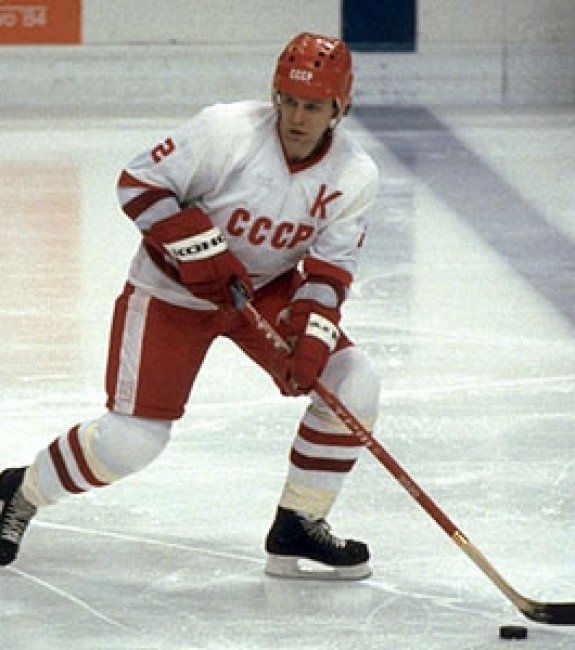
Switzerland went winless in their first World Junior appearance, scoring just seven goals over six games, and was regulated to Pool B, but would return several times over the next couple decades before they became a top-10 regular in 1996. The Soviets, on the other hand, nearly ruined their gold medal streak in the very next game, where they lost 6-3 to Sweden, giving them their very first loss at the tournament. But the Soviets got their revenge in the Championship Round, defeating Sweden 5-0, then again in the gold medal game, 5-2, to claim their second official gold.
6 – Finland 18-Switzerland 1 (1978)
Switzerland’s second game of the 1978 World Juniors was just as bad as the first. After falling 18-1 to the USSR, they faced Finland, who also scored 18 goals against them. Finland faired much worse than the Swiss’ previous opponent, however, as they fell to the Soviets in their next game and were unable to beat the Americans in the Championship Round. The Finns finished in sixth place, their worst finish at the tournament up to that point.
Related: World Junior Championship All-Time Leading Scorers
Although the Swiss never lost as badly as they did in their first two games, the rest of their tournament did not go smoothly. They lost the rest of their games, including an 11-1 thumping from the Americans, and ended their first World Junior Championship with 70 goals allowed over six games. It was the highest ever recorded at the tournament, and it would remain until 1982 when the Swiss returned for their third tournament. That year, they broke their own record, allowing 81 goals over seven contests.
5 – Czechoslovakia 21-Austria 4 (1981)
Austria first appeared at the U20 level in 1979 in Pool B, but worked their way up to the World Junior Championship in just two years, making their top group debut in 1981. It was a big step for the small country, but they may not have been truly prepared for the competition they faced. In their very first game, they were stomped by the Soviets — as was the custom for newly promoted teams — losing by a margin of 18 goals.
Then came Czechoslovakia. While the Czech Republic has struggled to find success at the tournament, before 1994, the Czechs were medal regulars. Their junior rosters rivaled those of the Soviets and later the Canadians; in their 17 appearances, they missed out on a medal just six times and never fell below fifth. In 1981, they were especially potent with the likes of top prospect Jiri Dudacek, high-scoring defenseman Miroslav Horava, and a 17-year-old Vladimir Ruzicka. It was one of the most mismatched games of the tournament, and the final score of 21-4 set a World Junior record for the most goals scored against a single team.
Unfortunately, the Czechs failed to keep their momentum up for the remainder of the competition. They lost to the Soviets and tied the Swedes and Finns, finishing with a record of 1-1-3 and leaving them in fourth place. As for Austria, they failed to score more than four goals for the rest of the tournament and were relegated back to Pool B for the 1982 tournament.
4 – Finland 19-Switzerland 1 (1980)
With their fourth entry on this list, it may be an understatement to say that Switzerland struggled in the early years of the World Juniors. They were too good for Pool B and won the tournament eight times from 1979 to 1995, but they were clearly outmatched in the top group. The Swiss avoided relegation just twice in the same time span, in 1986 and 1991, before they found their place in 1996, led by Reto von Arx and Mark Streit. Since then, they’ve continued to produce NHL-calibre talent and remained a playoff threat at the tournament.
But in 1980, those years were a long way off. They faced the 1979 gold-medalists in their first game, and didn’t fair too badly, only allowed six goals while facing down Larionov and Krutov. However, their next game was against Finland, who possessed one of the world’s best up-and-coming international stars — Jari Kurri. He and the Finns made a mockery of the Swiss, scoring 19 goals and holding their opponents to just a single point.
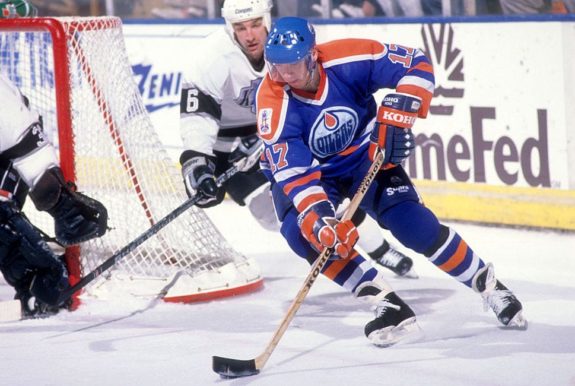
While Switzerland failed to win any of their remaining games, the Finns went on to face the Soviets, losing just 2-1. It would be their only loss of the tournament and the only thing that kept them from the gold medal. It was their best finish in World Junior history, though, and they returned in 1981 to claim their second silver medal in a row.
3 – USSR 19-Austria 1 (1981)
Before the Austrians were demolished by the Czechs 21-4, they had to face the USSR. As the newest team in the 1981 tournament, they had the challenge of taking on the previous year’s gold-medalists. The end result was not pretty. Whereas Austria managed to score four goals against the high-scoring Czechs, the Soviets only allowed a single goal while putting 19 past the Austrian netminder. But unlike their previous blowouts, this one did not result in a first-place finish. The Soviets were undefeated in preliminary play, but lost to both Sweden and Finland in the Challenge Round, the first time they lost more than a single game.
As mentioned before, Austria went winless in their first appearance and was shuffled off to the Consolation Round, where they faced, to their surprise, both Canada and the United States. Canada had put together a historically bad World Juniors, winning just a single game, defeating Austria 11-1. They even lost both their relegation games and were only saved from leaving the top group by the Austrians, whose 0-5 record placed them firmly in last place. Austria would remain in the second division until 2004 when they finally returned thanks to the efforts of 2003 fifth-overall pick, Thomas Vanek.
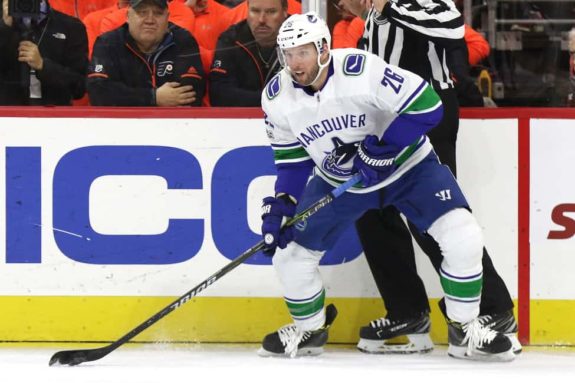
The 1981 World Junior Championship was a strange tournament. It was the first time the Soviets didn’t win gold, and Canada was nearly relegated, despite having a team of QMJHL all-stars and featuring Dale Hawerchuk and Dough Gilmour. After an embarrassing 7-6 loss to the Germans, Hockey Canada changed its selection process drastically, choosing to take the best U20 Canadian players, no matter where they played. It resulted in their first gold medal in 1982 and greatly influenced the way the Canadians saw the tournament.
2 – USA 19-Norway 1 (1991)
From 1977 to 2003, the Americans struggled to find success at the World Juniors, winning just one silver and two bronze medals. But that didn’t mean they were bad teams. In 1991, they sported an all-star lineup of Doug Weight, Keith Tkachuk, Ted Drury, Bill Lindsey, and Brian Rolston, plus Mike Dunham in net. But they got off to a rough start, putting together a 1-2-1 record. Another loss would doom them to return from another World Juniors without a medal.
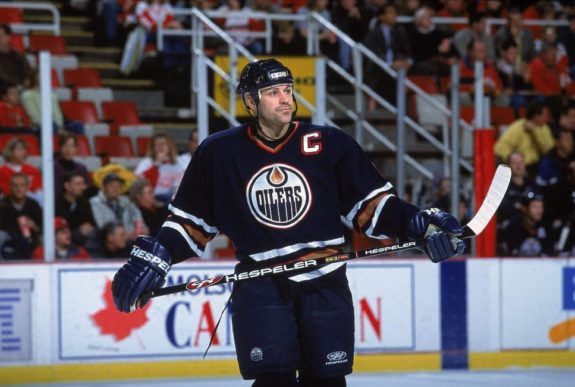
It’s possible that there may have been some frustration for the Americans coming into their fifth game. Norway had been with the top group since 1989, even beating the Americans in 1990, but were usually near the bottom of the standings. So, on their meeting on Jan. 1, 1991, the Americans held nothing back. The Norwegians could do nothing but hold on for dear life while Team USA scored a whopping 19 goals and allowed just one by them. Norway was unable to recover after that and they dropped their games against Switzerland and Sweden, plunging them into last place.
Even though Weight set an American scoring record with 19 points in just five games, their slow had already sealed their fate. The Czechs beat Finland in their last game to claim third place, leaving the USA in fourth. The Americans won a silver in 1997, but they had to wait until 2004 to get their hands on the gold. Norway has returned to the top group three times since their loss to the Americans, but have been unable to stick around for more than a single tournament.
1 – Sweden 20-Japan 1 (1993)
Japan’s only appearance in the WJC seems like a mistake. Never before or since has the small nation even been close to qualifying for the tournament, yet in the 1992 Divison IA competition, they defied the odds to secure the coveted spot in the 1993 championship. The Pool B tournament ended with a four-way tie for first, with Japan’s 10 points equaling that of France, Norway, and Poland. The Norwegians and Poles were already tournament regulars, having made several appearances throughout history, while France was always near the top of Pool B. Yet, it was Japan that was promoted.
In their first game, they faced Viktor Kozlov and the Russians, who gave the Japanese a jarring welcome to the top group. After 60 minutes, Japan had failed to score a goal, while the Russians had put away 16. In their second game, Japan fared slightly better, holding the Finns to just seven goals, but failed to score again. They’d score twice against the United States, but allow 12 goals in another blowout loss.
Then came the Swedes. Never before were two teams so mismatched as they were between Sweden and Japan in 1993. The Swedes were led by 1991 first-round picks Peter Forsberg and Markus Naslund, plus future NHL stars Andreas Johansson, Niclas Havelid, Kenny Jonsson, and Niklas Sundstrom. Japan had Hiroyuki Miura, a defenseman playing for the Fort Saskatchewan Traders of the AJHL, and had been drafted in the 1992 NHL draft in the 11th round by the Montreal Canadians.
Sweden went on a tear, and the Japanese were helpless to stop them. The final score was 20-1, with Forsberg setting a tournament record for points in a single game with 10. The message was clear — Japan’s time in the top group was over. They dropped their final three games and were outscored 83-9 and relegated back to Group B, taking the record from Switzerland for the most goals allowed in a single tournament. Since then, the closest Japan got to returning was in 1996, when they finished third in Division B. They were relegated to the third division shortly after, and have been unable to stick in that second group ever since.
As for Sweden, Forsberg and Naslund dominated, ending with 31 and 24 points, respectively, point records that still stand to this day. But it wasn’t enough to beat the Canadians, who rode goalie Manny Legace to the gold medal, leaving the Swedes with a tarnished silver. The 1993 Swedish team could be one of the best to never win a gold medal. Neither Forsberg nor Naslund ever won a World Junior gold medal, which is hard to believe, but it hardly hurt their careers, as both became two of the greatest NHL players in the 1990s and 2000s.
The Skill Gap is Closing
Very few of the teams that blew out their opponents won the gold medal. The only exceptions are the Soviets, who truly dominated the early World Junior tournaments. That was proven true again this year after Canada lost the gold medal game to the United States, despite posting the highest-scoring game in the last several years. Overconfidence is a killer, and no team has been able to both eviscerate its competition and claim the top prize in a long time.
It’s also unlikely that Sweden’s record-setting game against Japan will ever be broken. In nearly 30 years, no team has come even close to that kind of dominance. While blowouts still happen, as was witnessed this year with Germany and Austria, the gap between the top nations and those on the fringe is the smallest it’s ever been. Both Germany and Austria possessed top-10 picks on their rosters, and Switzerland and Slovakia routinely produce top hockey prospects, as do Belarus, Latvia, Norway, and Denmark. Even non-typical markets like France, Britain, China, and Japan have seen an increase in player development.
While it may be disappointing that we’ll never see a 20-goal game again, it’s good news for the state of hockey. The sport is truly becoming a global game, which will only make the game we love that much better.
